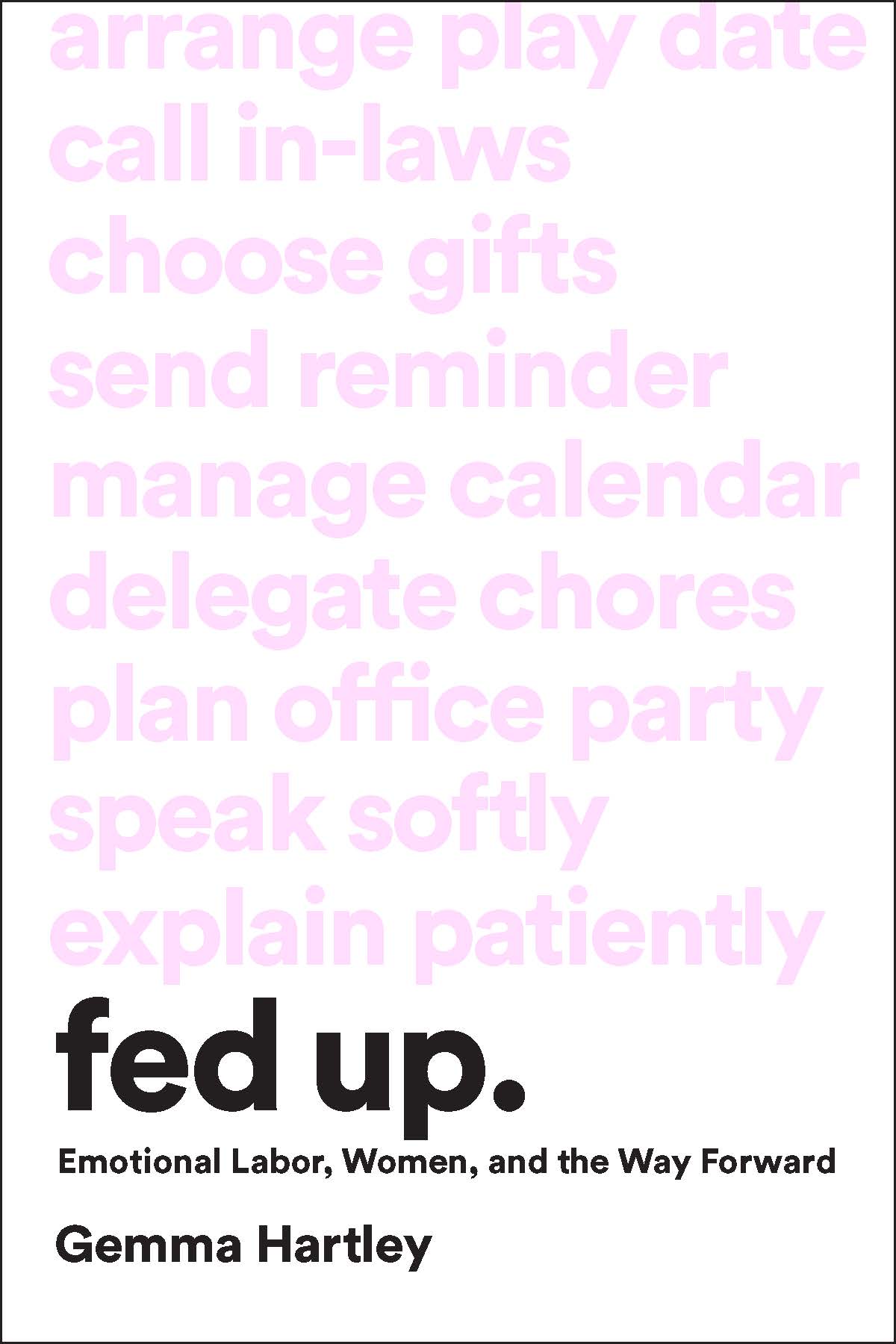Trying to figure out why your wife isn’t happy? Gemma Hartley might know.
Last year, she wrote an article that nailed probably the single biggest gripe of the modern mum. The story went super-viral, racking up more than 2 billion clicks and one million shares. The internet rocked on its axis from the centrifugal force of womankind nodding in agreement.
Written for Harper’s Bazaar, Gemma’s article: Women Aren’t Nags, We’re Just Fed Up explored why, beneath the surface, family life isn’t really fair.
Mothers, it pointed out, are still invariably forced to assume the role of domestic manager. They’re still compelled to take on most of the behind-the-scenes work and organisation – think writing the shopping lists, making the dentist appointments and wrangling a babysitter who’s not criminally insane. In short, they’re largely responsible for ensuring the household runs smoothly.
It’s formally defined as “emotional labour”, or less formally as “the thankless crap that someone has to do that’s hardly ever acknowledged”. And it continues to fall to mums, despite the fact they’re often juggling their own careers too.
Unsurprisingly, more and more women feel overwhelmed, resentful and mad as hell.
Now as a man, this is your cue to roll your eyes and get defensive (that was my first response, at least). After all, between changing nappies, buying groceries and spoon-feeding your toddler strawberry custard, there’s no doubt you do way more childcare and housework than your old man ever did.
“And you’re not wrong,” reasons Gemma over the phone. “But that doesn’t mean things are equal. You want to aim for equality between you and your wife. Not between you and your dad.”
She certainly has a point. Her new book, Fed Up, expands on this subject and explores Gemma’s efforts with her husband, Rob, to find a truly balanced way of sharing the burden for family life. Spoiler alert: it’s a struggle but they get there and the benefits turn out to be eye-opening and profound.
PAY OFF 1: BETTER RELATIONSHIP
“The biggest impact has been on my relationship,” admits Gemma. “It’s done wonders for my marriage that I didn’t expect.”
On a practical level, sharing the drudgery of family life served as a release-valve for simmering tension. But Rob’s involvement on the domestic front also had a deeper effect.
For Gemma, it brought a powerful sense of validation and support that has strengthened the foundations of their marriage. “It’s led to less resentment and more understanding,” Gemma says. Need an extra slice of that in your marriage? Join the club…
PAY OFF 2: BETTER DEAL FOR YOU
If you’re anything like most men, your identity is based on your job and role as family breadwinner.
But there’s a downside to this eggs-in-one-basket approach. Your business can go south, you might suddenly lose your job or you might be stuck in a profession that you tolerate simply to pay your mortgage. In those cases, things can unravel pretty fast.
Becoming more hands-on in family life, Gemma suggests, redefines your value in a healthier way. Because let’s face it: death-bed regrets rarely involve wishing you’d spent more time in the office.
“It’s been really beneficial for Rob,” Gemma says. “Before everything hinged on his work. Like a lot of men, so much of his self-worth relied on his job. But when he got more involved at home he discovered there was this whole other side of his life that he became more connected to. It’s made him more confident in all parts of his life.”
PAY OFF 3: BETTER LIFE FOR
YOUR KIDS
Want your daughters to grow up shackled to a stale model of domestic servitude? Thought not. Got sons? Then you’ll want them to land in healthy relationships that aren’t gnawed away by bitter recriminations over whose turn it is to clean the bathroom floor.
Yet in order for your kids to understand relationship equality, you need to live the example. “It’s not good enough to talk about responsibilities,” Gemma says. “We have to model them. Children start picking up gender roles as early as three. They’re always paying attention.”
OK, SO DO HOW I GET THERE?
If you want to achieve a more balanced relationship, there are two key steps to making it happen.
STEP 1: Make sure you take parental leave if you’re having another baby.
“It is monumentally important,” Gemma insists. “Coming into parenthood is when we start to see the big division in emotional labour.”
When the father goes straight back to work, a baby’s arrival forces a couple into very specific roles. “Someone is going to pick up the crying baby, and the person who does it over and over again naturally becomes the primary caregiver,” Gemma says.
If you’re at home during the early phase of the baby’s life, you’ll not only get more confident at looking after your child, you’ll also get exposed to the endless domestic shit-storm that needs to be completed each day. This helps prevent the distribution of responsibilities becoming delineated and the gender battlelines being drawn up.
STEP 2: Your single most important move is deceptively simple, Gemma insists: open your eyes and examine what’s really happening in your life, your home and your relationship.
Instead of comparing your efforts to other men, ask yourself whether you’re truly shouldering an equal share of the domestic workload.
“What needs to be done is intuitive when you start paying attention,” says Gemma. “Pay attention. Don’t wait to be told. Get involved. It’ll make your life better and save your marriage.”
Fed Up: Navigating and redefining emotional labour for good by Gemma Hartley is out now (Hachette, $29.99)

